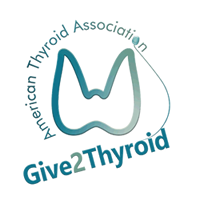BACKGROUND
It is well-known that thyroid hormone is required for normal brain function and many other aspects of health. In individuals with an underactive thyroid (hypothyroidism), thyroid hormone replacement, usually as levothyroxine, is needed to maintain normal thyroid hormone levels. Blood tests (TSH) are traditionally used to make sure that the dose of levothyroxine is correct.
However, it is unclear if small changes in TSH blood test results affect quality of life, mood, and cognition (brain function). This study was done in adults with hypothyroidism who were taking levothyroxine. Without knowing the type of change made, patients had their dose of levothyroxine either slightly increased, slightly decreased, or unchanged for six months. The patients completed questionnaires designed to assess quality of life, mood, and cognition before and at the end of the study period.
THE FULL ARTICLE TITLE:
Samuels MH ey al Effects of altering levothyroxine (L-T4) doses on quality of life, mood, and cognition in L-T4 treated subjects. J Clin Endocrinol Metab (ePub ahead of print)




